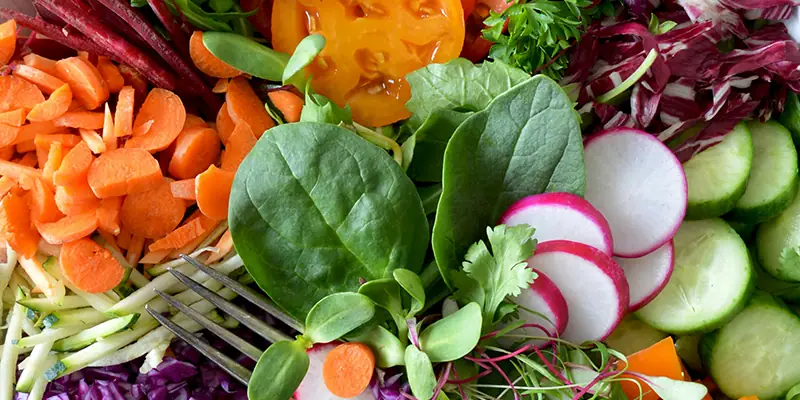Health and Wellness Helpful Topics
What are Probiotics, Prebiotics, and Postbiotics?
What are Probiotics, Prebiotics, and Postbiotics? Would you like to improve your health from the inside out? Listen to your gut! Probiotics are beneficial bacteria that reside in your intestinal tract. Prebiotics are compounds that feed bacteria. Both are beneficial to intestinal health. Meet postbiotics, the emerging buzzword. Postbiotics are invaluable byproducts of probiotic bacteria.
Early research indicates that food supplements containing these substances may increase immunity, suppress infections, regulate metabolism, and provide other benefits. While probiotics introduce good bacteria and prebiotics feed them, postbiotics are the healthful substances that those bacteria produce. Including all three in your diet may result in improved digestion, increased well-being, and a happy gut! Stay tuned as we explore how this gut trio can support whole-body benefits.
What are Probiotics?
Probiotics are, in their simplest description, “living and active bacteria.” They are live microorganisms, generally composed of mostly bacteria and some yeasts, that provide health advantages when ingested. They are frequently referred to as “good” or “friendly” bacteria since they aid in the balance of good and bad bacteria in your gut microbiome. These beneficial bacteria play a role in many aspects of your health, including digestive health, balanced gut microbiota, immune function, and skin health:
Popular sources of probiotics include:
- Natto: Japanese dish of fermented soybeans with Bacillus subtilis.
- Fermented Cheeses: Some aged cheeses, like Gouda, can have live cultures.
- Kefir: A fermented milk drink with diverse probiotics.
- Yogurt: Contains live cultures like Lactobacillus.
- Sauerkraut: Fermented cabbage with various probiotic strains.
- Kimchi: Korean dish made from fermented vegetables.
- Tempeh: Fermented soybean product with probiotics.
- Miso: Japanese seasoning produced by fermenting soybeans.
The list above is only a sampling of the many different kinds of probiotics that are available. These can differ greatly depending on the food sources in different parts of the world.
What are Prebiotics?
Prebiotics are nondigestible fibers that provide a food source for beneficial microorganisms in the gut. They are not bacteria in and of themselves, but they help them grow and thrive. This makes your gut healthy and balanced, which leads to benefits such as improved digestion, higher immunity, and even a happier mood! Consider planting seeds for a healthy gut garden.
Including prebiotics in your diet can contribute to a thriving gut microbiome. Here are some of the advantages of having a healthy gut flora that is maintained by prebiotics: Improved digestion, bloating relief, improved gut lining health, metabolism enhancement, immune system boost, mood health support, and blood sugar control.
Here are some common sources of prebiotics:
- Fruits and Vegetables: Bananas, apples, berries, asparagus, onions, garlic
- Legumes and Whole Grains: Lentils, chickpeas, beans, oats, barley
- Nuts and Seeds: Flaxseeds, chia seeds, and almonds.
- Some Fermented Foods: Kimchi, sauerkraut, miso
What are Postbiotics?
Postbiotics are beneficial byproducts produced by probiotic bacteria that provide health benefits to the body. These compounds include short-chain fatty acids, enzymes, bacteriocins, peptides, and organic acids that contribute to the overall health of the gut. Postbiotics play a role in modulating the immune system, reducing inflammation, and supporting a balanced microbial environment. Foods containing postbiotics are typically fermented products like kimchi, miso, and kombucha.
Conclusion
In conclusion, probiotics, prebiotics, and postbiotics all work together to promote gut health. Probiotics are beneficial bacteria that dwell in your intestinal tract. Prebiotics are compounds that aid in the feeding and growth of helpful microorganisms. Postbiotics are beneficial substances produced as byproducts of the probiotic digestion and fermentation of prebiotics.
Moreover, it’s a synergistic process: the probiotics party in your gut, the prebiotics supply the snacks to keep the party going, and the postbiotics are the leftovers that also provide health perks. Getting all three working in harmony supports better digestion, immunity, metabolism, and overall, well-being. So, when you tend to your gut microbiome with this trio, it’s like putting on a tiny party in your digestive system where everyone has a role to play for your health. Understanding how probiotics, prebiotics, and postbiotics interlink is key to gut balance and full-body benefits.
Disclaimer Notice:
It is critical to remember that our information is offered solely for educational reasons and should never be taken as medical advice.
Before using probiotics, consult with your doctor. Some probiotics may interact with drugs or cause negative effects in some people.
Probiotic research is continually advancing. The precise benefits and effectiveness of probiotics for certain illnesses vary depending on the circumstances.
Probiotics are not all created equal, and different types of bacteria provide varied benefits. It is critical to select the appropriate type for your requirements.
